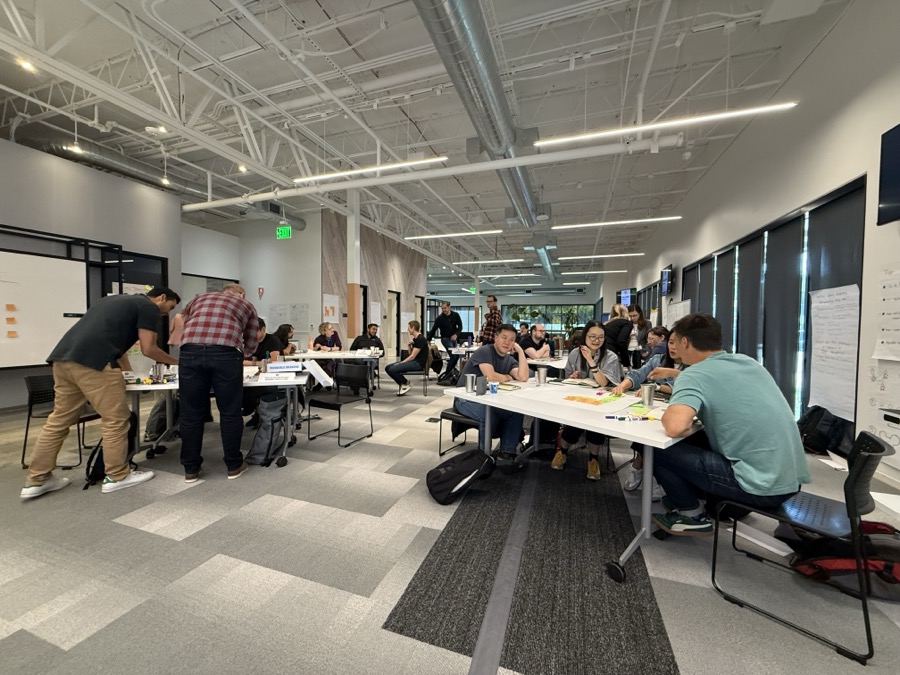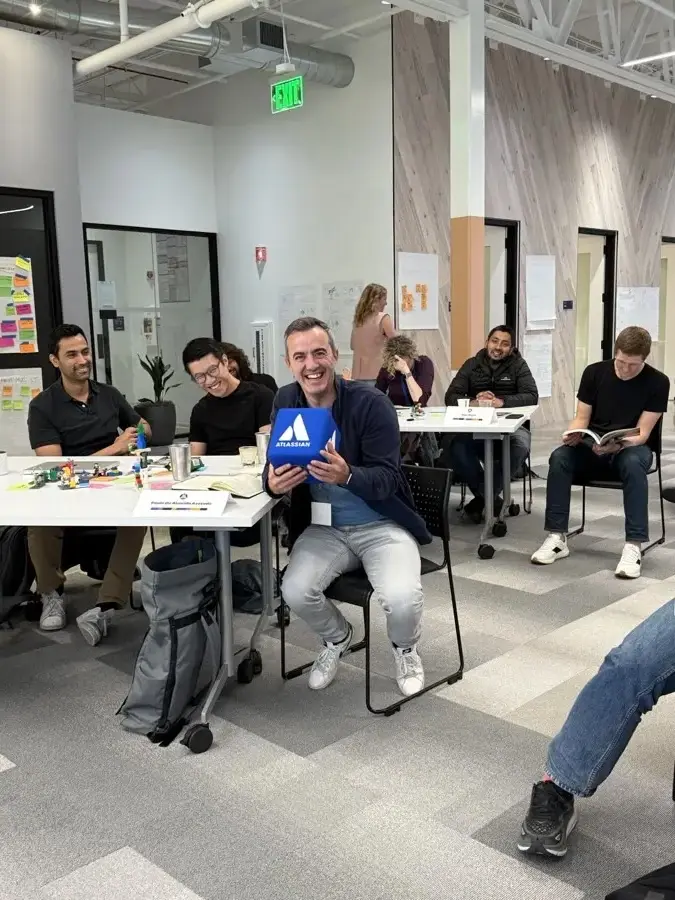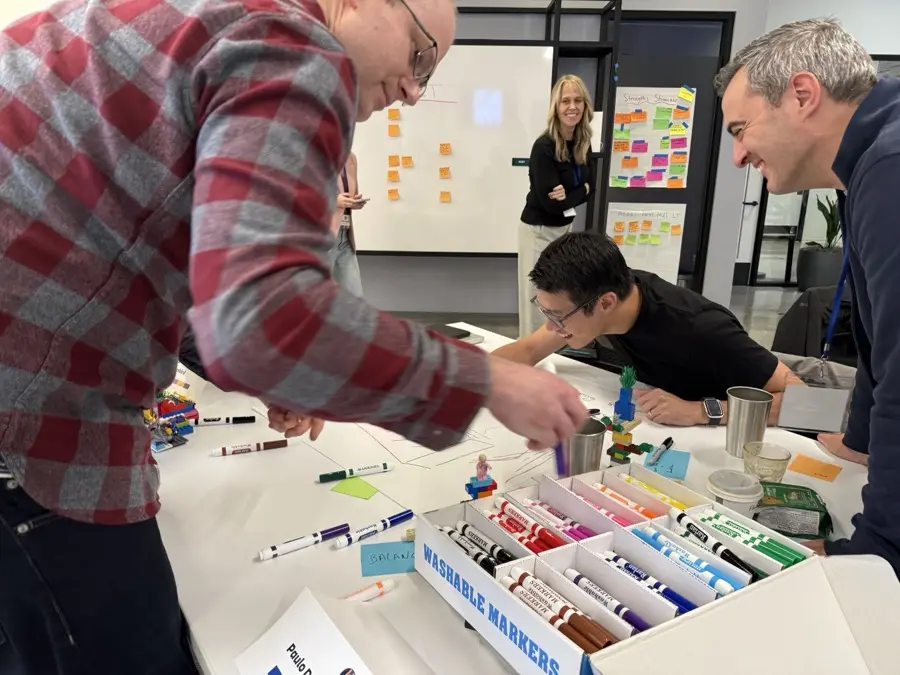
The Workshop
Near Future Laboratory provided a context and framework for a series of “Design Fiction Sprints” in which participants were given a short amount of time to collaboratively imagine possible future outcomes of their core products in a world in which AI is ubiquitous and on/in every surface. That is to say, a world in which AI is as normal, ordinary, and everyday as matcha lattés and avocado toast.
The outcomes of these rapid sprint cycles were shared back to the rest of the group for feedback, discussion, and evolution. The overall outcomes was to deliver a level of creative energy to the participants and to discuss how they might integrate Design Fiction into their current processes and bring it back to their teams when they return to their local sites.
Summary
Atlassian asked us to provide a workshop for a three day event in which they hosted some of the organization's top performers. The purpose was to introduce an approach to creative ideation that would allow them to explore innovative solutions in a rapidly evolving technological landscape dominated by AI and other emerging technologies.
Written By: Julian Bleecker
Semantic Tags DESIGN FICTIONFUTURES THINKINGWORKSHOP
atlassian-ascent-program-design-sprint
Atlassian asked us to provide a workshop to integrate into a three day event in which they hosted some of the enterprise’s top performers. The purpose was to introduce an approach to creative ideation that would allow them to explore innovative solutions in a rapidly evolving technological landscape dominated by AI and other emerging technologies.
Near Future Laboratory provided a context and framework for a series of “Design Fiction Sprints” in which participants were given a short amount of time to collaboratively imagine possible future outcomes of their core products in a world in which AI is ubiquitous and on/in every surface. That is to say, a world in which AI is as normal, ordinary, and everyday as matcha lattés and avocado toast.

The outcomes of these rapid sprint cycles were shared back to the rest of the group for feedback, discussion, and evolution. The overall outcomes was to deliver a level of creative energy to the participants and to discuss how they might integrate Design Fiction into their current processes and bring it back to their teams when they return to their local sites.
The collaborative atmosphere fostered during the workshop encouraged participants to push the boundaries of their thinking, envisioning products and services that not only meet the needs of today but anticipate and adapt to the complexities of tomorrow. Through these hands-on sprints and related activities, the teams of workshop participants were able to prototype their ideas — and deliver them as tangible representations that then sparked further dialogue and refinement. This iterative process of creation and feedback not only enhanced their understanding of Design Fiction but also cultivated a culture of innovation that can be sustained beyond the workshop.
As participants crafted narratives around their concepts, they dug deeply into the ethical implications and user experiences associated with AI technologies. This engagement with storytelling instilled a sense of responsibility in their design process, ensuring that their innovative solutions are not only technologically feasible but also socially relevant. The workshop culminated in a dynamic showcase, where teams presented their imaginative prototypes and narratives, fostering an environment of collaboration and shared learning.
The enthusiasm generated during the sprints served as a catalyst for discussion about future initiatives, with many participants expressing a desire to integrate Design Fiction methodologies into their regular workflows. By equipping these top performers with the tools and mindsets needed to navigate an AI-driven landscape, Atlassian is not just preparing for the future; they are actively shaping it, ensuring that their products remain relevant and impactful in an ever-evolving market. The success of this workshop exemplifies the power of creative ideation and the potential it has to transform organizational approaches to innovation.
